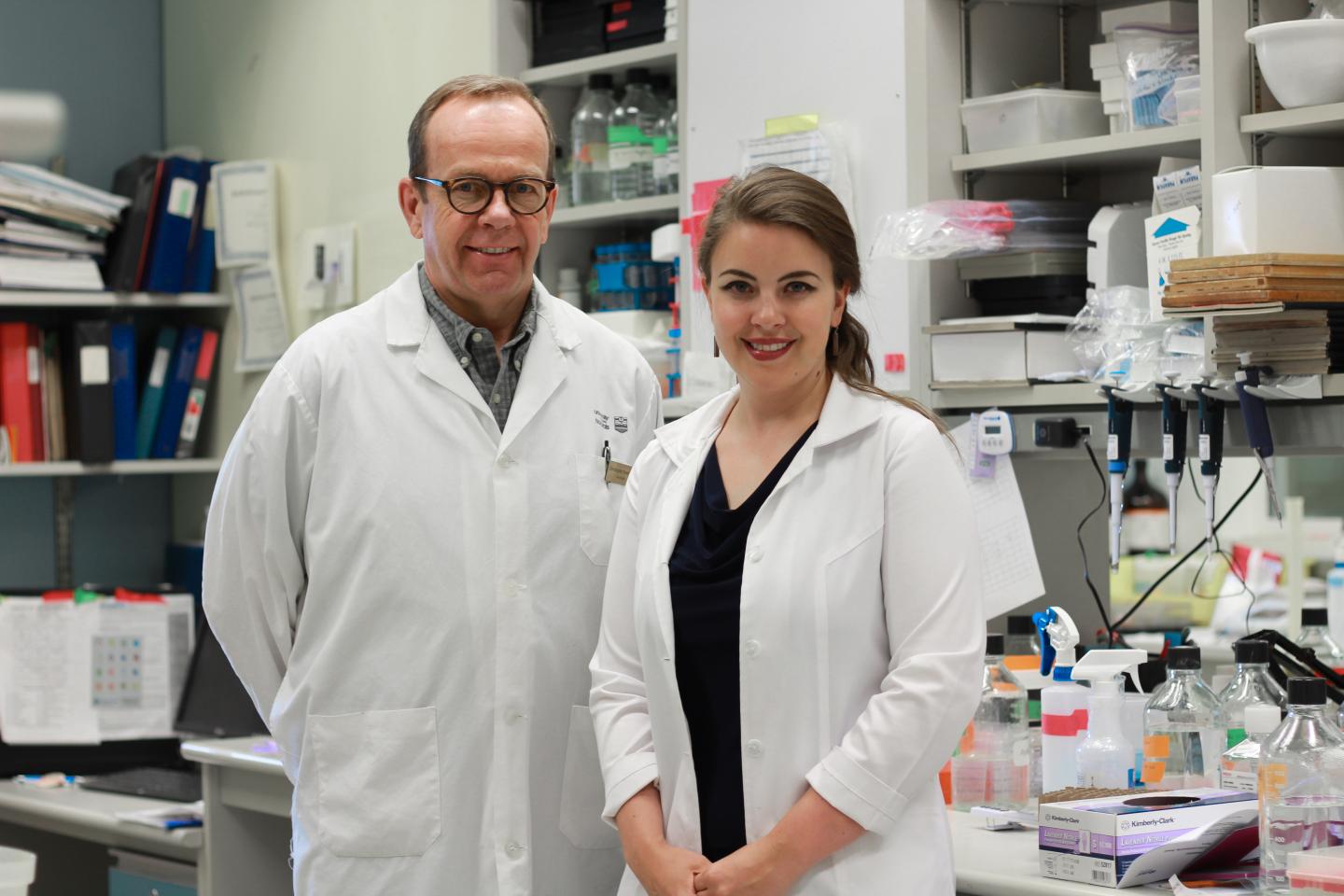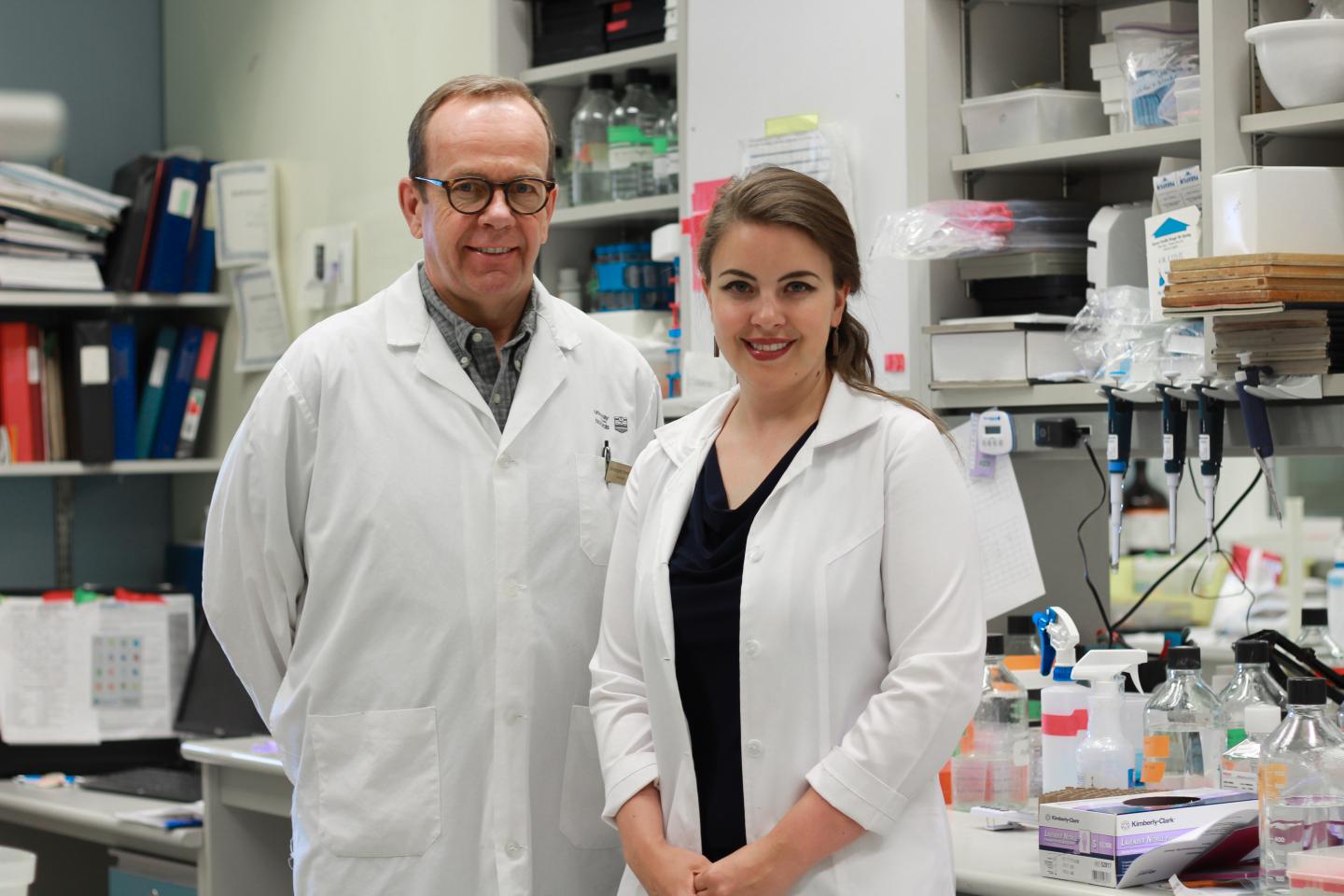
Credit: Melissa Fabrizio
Researchers at the University of Alberta have discovered a unique process of brain cell death that affects the cells that are most vulnerable in multiple sclerosis (MS).
After identifying the process called pyroptosis, or fiery death, the researchers were able to block the enzyme in the brain that is responsible for it, using a drug that could potentially treat MS.
"This could be a game changer, because we discovered a fundamental mechanism by which brain cells are damaged in MS that couples inflammation with neurodegeneration," said Chris Power, a neurologist, lead author of the study and co-director of the UAlberta MS Centre. "The drug is already known to be safe in humans."
MS is a common disease of the brain and spinal cord that affects people in the prime of their life. There is currently no curative treatment for MS and its cause remains unknown. On average, 11 people with MS are diagnosed daily and Alberta has one of the highest rates of the disease in the world.
The publication of the study in PNAS marks the first molecular analysis of pyroptosis in the human brain. Pyroptosis is a type of programmed cell death that is associated with inflammation, but its role in MS was previously unknown. Importantly, Power's lab was able to show pyroptosis in both brain tissues from MS patients and in lab models of MS.
"The study's findings make a key contribution to the MS field in identifying a novel mechanism that contributes to progression in MS," said Karen Lee, vice president of research at the MS Society of Canada. "The MS Society of Canada is encouraged by the results of this study and what it means for people living with MS–hope for another avenue through which treatment options can be explored to stop MS in its tracks."
Power's lab found that the drug known as VX-765 protected oligodendrocytes, the cells that insulate nerves in the brain and are susceptible to damage in MS. VX-765 is currently in clinical trials for epilepsy.
"We think this drug would break the cycle of neurotoxic inflammation and thus prevent future loss of brain cell in MS," said Brienne McKenzie, first author on the study and a PhD student in the U of A's Faculty of Medicine & Dentistry.
Power and his team believe identifying this mechanism also opens the doors to new indicators for monitoring disease progression of MS, which has been challenging since symptoms can vary widely between patients.
"Existing MS treatments work to reduce inflammation, but there is nothing that targets the brain cells themselves," said Avindra Nath, clinical director of the National Institute of Neurological Disorder and Stroke at the National Institutes of Health in Bethesda, MD. "This paper identifies a clinically relevant novel pathway that opens the doors to new therapeutic targets that prevent cell damage."
The study was a collaboration with a laboratory at the National Institutes of Health in Washington, DC. The MS Society of Canada and the University Hospital Foundation provided funding support for the research.
"The University Hospital Foundation is proud to be a long-time supporter of Dr. Power's groundbreaking research. Along with our generous donors, I congratulate Dr. Power on his discovery, and look forward to his future success," said Joyce Mallman Law, president of the University Hospital Foundation.
###
The study Caspase-1 inhibition prevents glial inflammasome activation and pyroptosis in models of multiple sclerosis was published in PNAS on June 12, 2018.
Media Contact
Shelby Soke
[email protected]
403-988-4730
@ualberta_fomd
http://www.med.ualberta.ca
Related Journal Article
http://dx.doi.org/10.1073/pnas.1722041115





